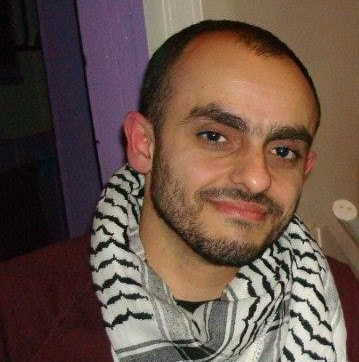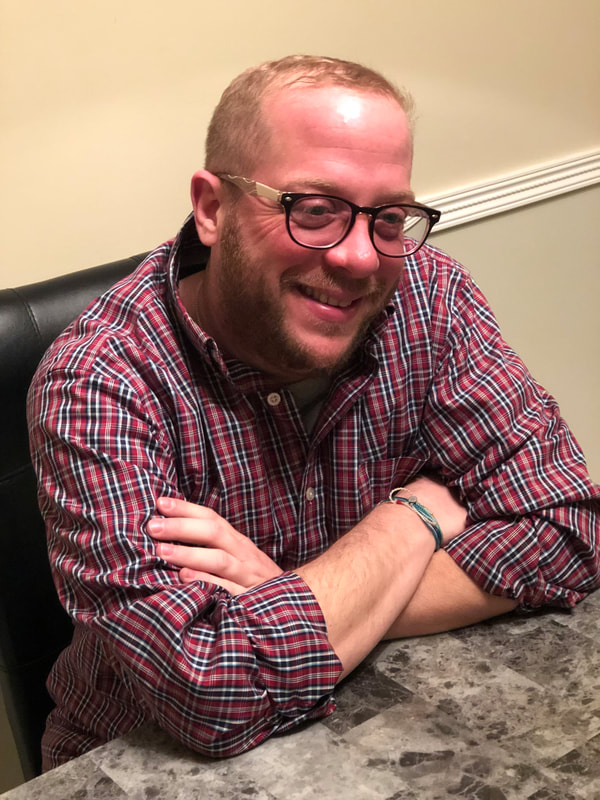About the Study:
Activating Trans Masculine College Students' Reflections on Campus Experiences, Masculinity, and Community-Building Through Long-Term Online Focus Groups
Hey there!
We are two trans-identified faculty members and researchers in higher education (see below for more about us) conducting a study on how trans masculine college students in the greater Chicagoland area build community and knowledge with each other on YouTube and Facebook, and how they relate with gender. We are looking to emphasize trans voices in defining and redefining gender, masculinity, femininity, transness, while connecting with each other.
Our definition of "trans masculine" is fairly broad. If you were assigned female at birth and understand your gender to be aligned more with transness, masculinity, and/or manhood, then you likely fit into this definition. Ultimately, it is up to you to define yourself and we are not interested in policing the boundaries of trans masculinity. The term can include trans men, female-to-male people, masculine-of-center folks, bois, Two Spirit folks, genderqueer individuals, nonbinary students, and more. If you are still unsure if you fit the criteria for the study, please do not hesitate to contact us for further clarification.
We want to include all kinds of trans masculine voices, across race, sexuality, ability, faith, and socioeconomic status. If you also identify as a person of color (including African-American or Black, Asian (American) Pacific Islander, Latin@ or Hispanic, Indigenous or Native American, Middle Eastern, Multiracial), undocumented, a person with disabilities, gay/queer/bi/pansexual, an international student, and/or working class, you are especially encouraged to participate. Additionally, we hope to have students from different institutional types and particularly encourage students from two-year, minority-serving, faith-based, single-sex-designated institutions to participate. One of the reasons we chose to focus in the Chicagoland area is precisely because of the large number and diversity of institutional types and our own personal and professional connections there.
We are two trans-identified faculty members and researchers in higher education (see below for more about us) conducting a study on how trans masculine college students in the greater Chicagoland area build community and knowledge with each other on YouTube and Facebook, and how they relate with gender. We are looking to emphasize trans voices in defining and redefining gender, masculinity, femininity, transness, while connecting with each other.
Our definition of "trans masculine" is fairly broad. If you were assigned female at birth and understand your gender to be aligned more with transness, masculinity, and/or manhood, then you likely fit into this definition. Ultimately, it is up to you to define yourself and we are not interested in policing the boundaries of trans masculinity. The term can include trans men, female-to-male people, masculine-of-center folks, bois, Two Spirit folks, genderqueer individuals, nonbinary students, and more. If you are still unsure if you fit the criteria for the study, please do not hesitate to contact us for further clarification.
We want to include all kinds of trans masculine voices, across race, sexuality, ability, faith, and socioeconomic status. If you also identify as a person of color (including African-American or Black, Asian (American) Pacific Islander, Latin@ or Hispanic, Indigenous or Native American, Middle Eastern, Multiracial), undocumented, a person with disabilities, gay/queer/bi/pansexual, an international student, and/or working class, you are especially encouraged to participate. Additionally, we hope to have students from different institutional types and particularly encourage students from two-year, minority-serving, faith-based, single-sex-designated institutions to participate. One of the reasons we chose to focus in the Chicagoland area is precisely because of the large number and diversity of institutional types and our own personal and professional connections there.
Interested in Participating?
Click here if you are interested in participating. Here you will find an informed consent form, contact information of the study’s researchers and the institutional review board (IRB), and an opportunity to indicate your interest by agreeing to the consent form and filling out a short demographic survey. Here you will also indicate if you prefer to participate in a publicly viewable YouTube channel, a secret Facebook group, or either. Doing so does not guarantee participation in the study, rather it allows us to contact you regarding this project should you be selected.
Thank you for your time and consideration. Again, please do not hesitate to contact us if you have any questions or concerns.
Thank you for your time and consideration. Again, please do not hesitate to contact us if you have any questions or concerns.
About the Researchers
|
T.J. Jourian is assistant professor of higher education leadership at Oakland University in Rochester, MI. He identifies as a queer immigrant trans man of color with depression, temporarily able-bodied, faith-ambiguous, and from a working class background. T.J. is interested in equity and justice issues, including intersectionality, gender, race, and sexuality, student leadership and activism, higher education and student affairs curricula, centering queer and trans populations of color across these areas. As a qualitative scholar-practitioner, he primarily uses transfeminist, interdisciplinary, collaborative, participatory, and critical methodologies. His dissertation study focused on how trans masculine college students conceptualize masculinity. T.J. is currently focused on co-building a national research agenda with and driven by trans higher education populations. Prior to faculty life, he served as the Program Coordinator at the Office of LGBTQI Life at Vanderbilt University.
|
Chase Catalano is assistant professor of college student personnel (CSP) at Western Illinois University in Macomb, IL. He identifies as a chubby nerdy white queer trans man, who is temporarily able-bodied, agnostic, and from a middle-class background. Chase is a trans scholar, which means he identifies as trans, as well as studies trans identities and experiences, policies and practices about trans inclusion, and transness in higher education. His research and publications address topics of social justice, queerness, trans*ness, and masculinities. He approaches his work (or tries to) from a liberatory perspective, seeking collaborations that enable intersectional analyses of higher education and student affairs. He hopes to inspire higher education professionals to engage in critical praxis (reflection and action) to achieve sustainable changes for equity and potentiality in the culture of higher education. Chase served as the Director of the LGBT Resources Center at Syracuse University.
|


